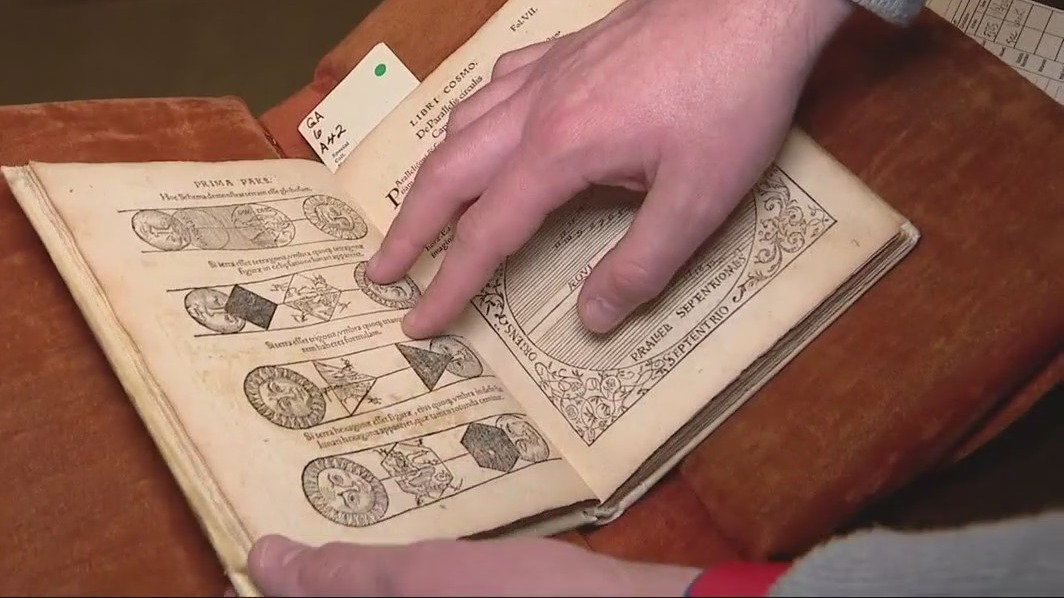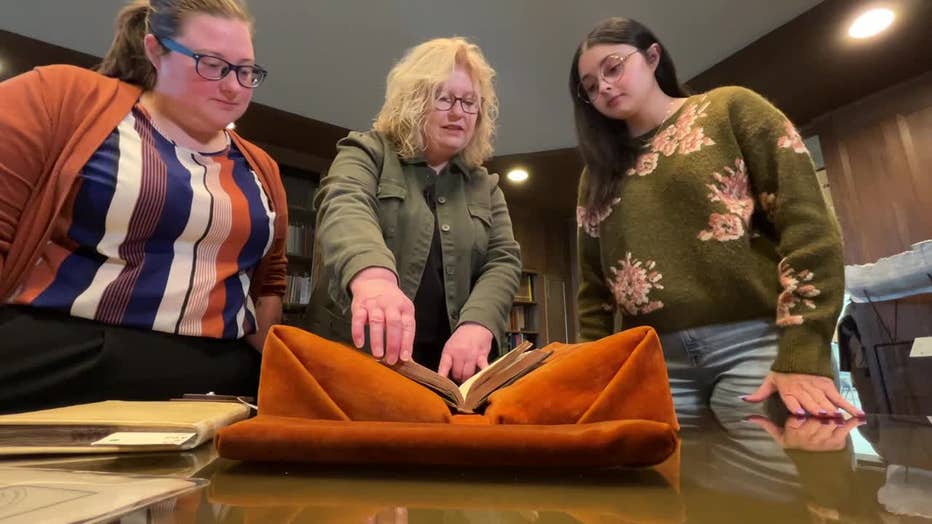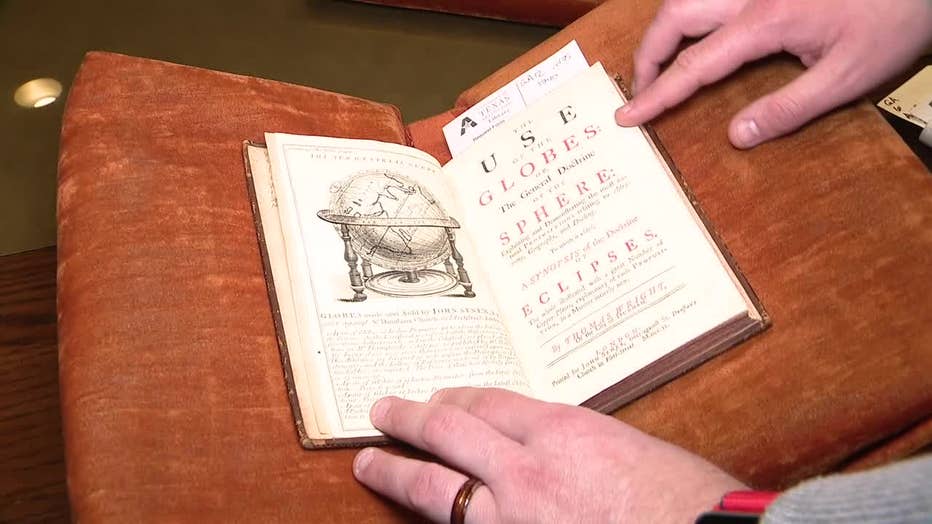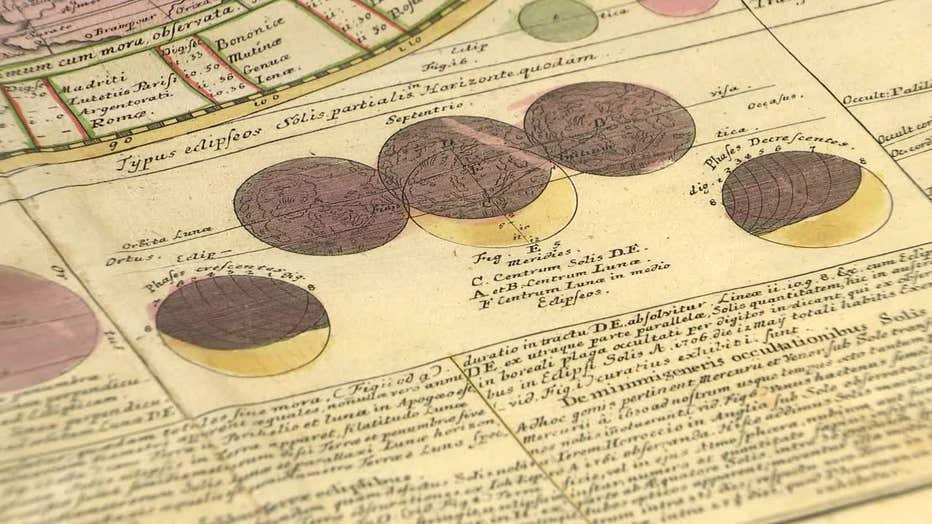UT Arlington's celestial exhibit features ancient solar eclipse interpretations

Ancient eclipse maps housed at UT Arlington
With a total solar eclipse coming in April, UT Arlington is looking back at the history of how people used to think of the celestial phenomenon. The University of Texas at Arlington is preparing exhibits to show the history of the eclipse that date back as far as the year 1534.
ARLINGTON, Texas - As North Texans prepare for a front-seat look at next month's solar eclipse, excitement is building for this once-in-a-lifetime event.
And the University of Texas at Arlington is peeling back the celestial pages of history.
There's documentation that reveals how people in ancient times interpreted solar eclipses.
The faculty and staff at UT Arlington are busy preparing for April 8 and can't wait to share.

If it seems the rarity of a total eclipse is fascinating, imagine people during ancient times and how they reacted to such a galactic phenomenon.
UT Arlington history professor Dr. Kim Breuer and a team of experts in the university’s Library of Special Collections are gearing up for April 8 when the next total eclipse will cross the United States and prominently here in North Texas.
READ MORE: When will the solar eclipse happen near me?
"Solar eclipses are much rarer than lunar eclipses. So they started to have all sorts of thoughts about this," she said. "They gathered all this information, and they noticed patterns. The things that were odd, comets, supernova, total eclipses, they started wondering what’s going on with that."
Librarian and archivist Evan Spencer and the group is preparing exhibits for the public that will take you back as far as 1534 with an eclipse timeline.

"Published in 1534, it’s all in Latin," he explained about a history book. "But it explains basically their understanding of the universe."
Meantime, Dr. Breuer explains how societies evolved. Native cultures believed eclipses were explanations for war, famine and drought.
"If there’s a war going on, or if there’s a drought going on," she said. "Then, if we get this exact same eclipse occur..."

Medieval Europeans had a slightly different view.
"They also say it’s God and the heavens. This is a natural event that’s been caused by God," Breuer explained. "And medieval Europeans, they think it is a sign of political change when there’s a solar eclipse, not a lunar eclipse."
READ MORE: Texas sees 600% increase in searches on Airbnb as travelers hope to see April eclipse
Now, in modern society, the fascination continues.

"We see this phenomenal event in the sky. We are having that same sense of all. Think about all the people who came before us that saw this and all the people in the future," Breuer said. "That’s why I think we want to come together and enlarge numbers and watch it communally. We are part of mankind all watching these events. We always look up for them."
READ MORE: Perot Museum donating 1 million safety glasses ahead of total eclipse
After the total solar eclipse on April 8, there won't be another that can be seen from the United States until August 2044.

